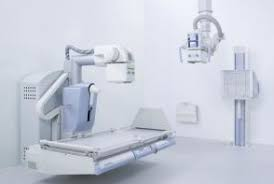If you or someone you love is injured, it's important to know the different types of medical devices out there. It can be hard to keep up with the changes in technology that are occurring at breakneck speed. This blog gives a helpful breakdown of six different medical device types and their benefits, from anesthesia machines to insulin pumps.
Hospitals
Hospitals use a variety of medical devices to help with care for their patients. Some of these devices are traditional machines that are used in hospitals, and others are the result of the innovation within the field. The devices come in a variety of shapes and sizes, and they can be used for many different things.
PR and Marketing
Marketing is a huge part of any business and when it comes to products, one of the most effective ways to market them is through press releases. Press releases are written up by people in marketing and public relations and can be sent out on a company's behalf in order to promote their product or service. The goal is to get media coverage which will help spread the word about the company's product or service.
Heart Disease
Heart disease is the leading cause of death in the world. A few years ago, a new technology was developed that makes it possible to accurately diagnose heart disease. The technology is the first diagnostic tool that can identify plaque buildup in a patient's arteries with an incredible sensitivity. This device was originally designed for hospitals, but now it is available for home use as well.
Rheumatoid Arthritis
Rheumatoid Arthritis, a disease where the immune system attacks the joints and leads to pain and swelling, can be treated with rituximab, a medication that specifically targets T cells. Patients who take this drug experience significant improvements in their symptoms as well as decreased need for care.
Diabetes
Diabetes is a chronic disease that is characterized by high levels of blood glucose, which can lead to complications such as vision loss and nerve damage. Patients who have diabetes are typically prescribed therapy such as insulin injections or a pump that delivers precise doses at precise intervals. However, in the event that those treatments stop working well, patients may be prescribed a continuous glucose monitor (CGM) device. This device can measure your glucose levels every minute and transmit this information wirelessly to your doctor via a cellular connection.

Comments
Post a Comment